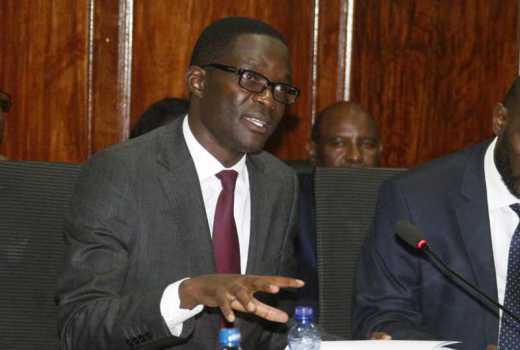×
The Standard e-Paper
Home To Bold Columnists

There could have been irregularities touching on transportation of poll materials in 2013, the electoral agency has said.
Independent Electoral and Boundaries Commission (IEBC) Chief Executive Ezra Chiloba made the revelation when he appeared before the National Assembly Public Accounts Committee (PAC) Monday.